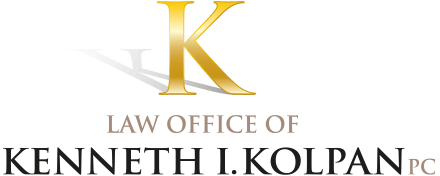Admissibility of Neuropsychological Testimony
Kenneth I. Kolpan, JD (Editor)
The article, "Forensic aspects of Mild Head Trauma" (see Barth et el, this issue), correctly points out the significant role that neuropsychologists play in personal injury litagation involving head injuries. Not only are neuropsychologists important members of the health care team in diagnosis, remediation, and treatment of the deficits of the head injured, but as expert witnesses assisting judges and juries in their legal determinations they can be valuable members of the "legal team."
Despite this, a recent Florida Court of Appeals decision severely limited the role of neuropsychologists in the courtroom. In GIW Southern Valve Company v. Robert C. Smith, the plaintiff suffered a serious head injury and was awarded $1.35 million by a jury. This verdict was overturned because an appeals court ruled that the testifying neuropsychologists could not give an opinion as to whether existing brain damage was the result of the plaintiff's accident. In citing a previous case, the court reasoned that a neuropsychologist lacked the necessary background that would qualify him or her to give an opinion about what happens to the brain after trauma. The court further stated:
Just as, relative to causation, witness who is a psychologists and not a medical doctor and lacks qualifications to trace retrospectively what would occur to the brain from a given trauma, see Executive Car, so also does the witness (more specifically, the witness in this case) lack established qualifications to trace prospectively what would occur to the brain in the future.
The court concluded that the plaintiff's expert, clinical psychologist, could not offer an opinion relative to causation nor assist the jury in assessing the plaintiff's prognosis. without this expert testimony, it is questionable whether the plaintiff can pursue his case. the matter has been referred to the trial court for a new trial on damages.
If the GIW decision is followed in other jurisdictions, then attorneys handling head injury cases, especially those involving so-called minor injuries, will have considerable difficulty convincing juries of the serious deficits from such injuries. usually, the medical evidence in these cases includes negative findings on skull x-rays and computed tomography films. Of course, these negative findings do not rule out neurologic sequelae as a result of a minor head injury. However, to convince a jury of the effects of minor head injury, objective evidence must be presented. Where diagnostic films are negative, neuropsychologic testing becomes the most important piece of objective evidence. If neuropsychologic test data and the opinions therefrom are admitted into evidence, juries and judges are more likely to understand the effects that a minor head injury can have on cognitive functioning.
Other jurisdictions are more liberal in accepting testimony from psychologists. For example, in Massachusetts, an expert is allowed to render an opinion if it will aid or assist the jury in its determinations. In Pennsylvania, a psychologist's opinion regarding organic damage is readily admissible. As more neuropsychologists become involved in the legal system and articles such as the one in this journal are written, courts will readily acknowledge the expertise that neuropsychologists have and the invaluable assistance they provide to the court, the juries, and the head injured.
 Boston Brain Injury Lawyer Kenneth I. Kolpan Home
Boston Brain Injury Lawyer Kenneth I. Kolpan Home







